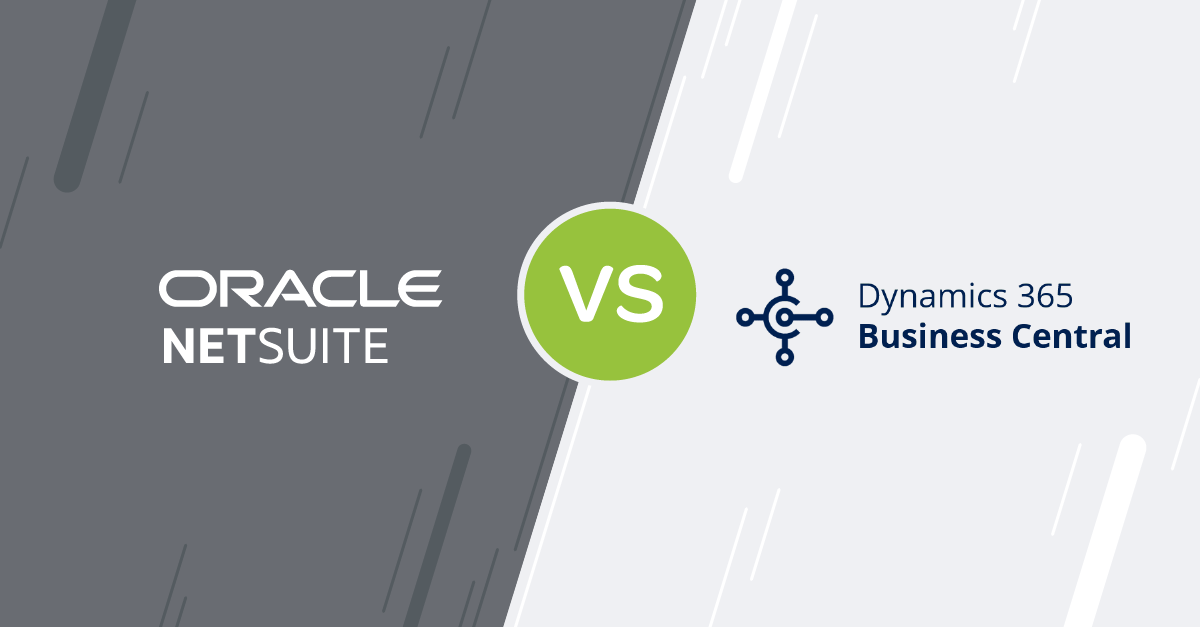Blog
Share this
NetSuite Implementation Mistakes to Avoid

by Jalene Ippolito on April 24, 2023
Much like your nervous system, an ERP system processes essential business data from multiple sources and makes it available for critical decision-making. It guides the organization's 'movements' or operational processes. Any disruptions to the flow of information into and out of the ERP will likely affect operations negatively.
The success or 'failure' of a NetSuite implementation affects several aspects of the business—from regulatory compliances to stakeholder confidence, employee satisfaction and organizational productivity—there's a lot at stake here.
Remember that when we talk about an ERP failure, it's rarely a failure of the software—it's a failure of how you manage the implementation project. For example, how you configure the ERP software, how rigorously you test it, and how you train people are all aspects that contribute to the success or failure of the project.
8 NetSuite implementation mistakes to avoid
Let's look at some of the known pitfalls or typical reasons for the 'unsatisfactory' results of a NetSuite implementation process.
1. Failing to plan (is planning to fail)
An ERP implementation must be built on a strong foundation. Just as the strength and durability of any structure depend on its foundation, the success of your NetSuite ERP rollout depends on careful strategic planning.
Executing each phase with care will create the foundation you need—from setting project objectives to gathering requirements, scoping the project and creating a detailed project plan.
- Clearly articulate the objectives of your implementation project. Get specific to ensure your objectives aren’t too broad.
- Set clear benchmarks against which you can evaluate the project's success at its completion.
- The objectives should also look out into the near future and consider what your company may need over the next 5-10 years.
- Avoid the tendency to create a laundry list of 'wants.' Instead, identify the critical objectives you need to meet to help the company gear up for growth and scale.
- Guard against project scope creep, as it often leads to budget overruns.
Pro tip
Read ProjectLine's SME Guide to NetSuite Implementation for an overview of the different approaches to planning an implementation project.
2. Underestimating the importance of communication
An effective NetSuite implementation hinges on effective communication. How?
Let's say you jump into a NetSuite implementation, but your team members aren't involved in the planning or requirements gathering.
If you don't engage with the day-to-day users of the ERP, you'll miss out on the critical, minute details of existing processes and how they will be affected by the implementation.
- Communicate with end users to identify processes that are working well so you can retain them and improve those that are deficient.
- Talk to the project team and hold regular check-ins with employees at all levels in various departments.
- Actively engage with top management for decisions related to project timelines, budgeting and implementation resources. Any friction with management can cause delays, doubts and the dreaded diagnosis of a 'poor implementation'!
- Convince management to prioritize time allocation for the key members of your implementation team.
- Choose a project champion with a high-level understanding of the business, a keen eye on the stakeholders' objectives and a finger on the pulse of your company culture.
3. Treating a NetSuite implementation as a technology project
An ERP implementation has a wide-ranging impact on your business.
Your employees may need to change years-old processes and adopt newer automation-assisted processes to make the project successful.
It’s a transformative exercise for many companies that haven’t used an enterprise-wide application before.
- Look at your NetSuite implementation project as a business transformation project that spans across departments, rather than an IT department project.
- Focus on processes and people before the technology—this will set the right tone across the company.
- Ensure you have buy-in from senior leaders and end users across departments—they have to be convinced that new processes will help them if you want to achieve results at an operational level.
- Avoid retaining old, inefficient processes, thinking that technology can alter the result. It won't!
- Remember that deploying an ERP system will only solve your problems if you’re willing to re-evaluate and optimize your processes.
At ProjectLine, we focus on the human side of ERP: understanding your people and your challenges before aligning processes and ERP technology. We’ll guide you through the process, including ERP customization, integration and training support.
4. Leaning too much on customization
You can solve most operational challenges with standard NetSuite features. Where companies can get into trouble is creating a customization for every special process that isn’t handled out-of-the-box.
While customization is a good strategy to finetune a NetSuite implementation, it must be used only when necessary. In many instances, thoughtful configuration is all that’s needed to achieve the result you're looking for.
- Configure before you customize and benefit from a faster implementation time, tried and tested code, and continued support of the feature or functionality.
- Customization can be resource-intensive—both in terms of time and money. But, on the other hand, in the right situations, customization also adds tremendous value, which changes the conversation about cost. The key is to customize when necessary to achieve business value.
- Consider what extent of customization is necessary. Sometimes, a small customized component is all you need.
- Keep a long-term perspective: Customizing for today is not necessarily the answer for an efficient process for tomorrow. Consider how customization will affect tomorrow's scale and process complexity.
Work with an experienced implementation partner who reads between the lines to understand how a product feature can translate into the functionality your business needs.
At ProjectLine, we understand your processes and applications before recommending customizations.
5. Putting data migration last on the list
When implementing an ERP solution, you'll move data from older systems into a new database—converting information from a variety of different systems, formats and storage types into a standard structure.
Your business data is mission-critical, so plan your data migration carefully to avoid operational problems.
- Consult data experts or an experienced NetSuite consultant before extracting, cleansing and transforming data.
- Analyze existing data and consider how it will be used within NetSuite, mapping it to the structure of the new database.
- Be selective with data. Avoid migrating old, obsolete or inaccurate data into the new system.
- Accurately estimate the time and effort required for data cleansing and migration. (It usually takes longer than you think). Any misjudgments here can delay the go-live dates and cause cost overruns.
- When transferring data, make sure you comply with regional and industry-specific regulations.
Pro tip
Start testing the new system with small amounts of migrated data as early as possible to avoid last-minute glitches.
6. Not prioritizing training for NetSuite-specific skills
Inadequate training can limit the value you get from your NetSuite solution.
- Build adequate NetSuite skills into the workforce with training programs for all levels of users and across various functions or departments.
- Check for signs of resistance to change—sometimes, employees may continue with old, manual, inefficient ways of executing tasks in spite of the automation available. This can be a pitfall to the success of the new system.
- Put in a change management plan to help employees alter their mindset and adopt NetSuite to the fullest.
Ask us for our customized training programs for new users or refresher training courses.
7. Not using the NetSuite Sandbox environment for testing
The concept of a 'sandbox' originated as a safe place for children to play without getting hurt, allowing them to experiment and learn. The NetSuite sandbox environment does just that for your testers and end users.
During the implementation, your NetSuite partner can use it as a secure environment to experiment with various configurations and customizations and test different scenarios without disturbing your real-time business data.
It’s also useful for end users to practice and test processes before go-live.
Using the sandbox environment for continuous improvements dramatically reduces the turnaround time for implementing new functionality or process automation.
Pro tip
At ProjectLine, we recommend thorough testing in the NetSuite sandbox environment before go-live and using it to train users so they’re comfortable with the system from day one.
8. Not picking the right NetSuite implementation partner
You need an expert NetSuite implementation partner to navigate successfully through your ERP project.
Working with a partner gives you access to expertise and, most importantly, puts your business processes at the center of the project to ensure your implementation truly meets your needs.
If you work directly with NetSuite, remember that their focus is on technology. They use predefined solutions that don’t always allow space for business process optimization, which is essential to a successful implementation. Not to mention that NetSuite is a large organization, and the project consultants assigned to you may change midway.
Partner with ProjectLine to buy and implement NetSuite
The true contribution of a partner is understanding people's resistance to change, managing stakeholder communication and projecting the future process requirements that will take your company toward growth in the next few years.
And a partner's role doesn't end when the new software goes live. You'll look to your partner for continuous improvements to the solution, new training requirements and ongoing support.
At ProjectLine, we don't just sell software. We work with you to uncover your key pains and address the processes that are unique to your business. You will have continuity and a level of attention you simply won't get from an ERP vendor.
Share this
Stay in the Know!
Join other SMEs who receive our monthly ERP insights, tips and best practices.
You may also like

ERP Funding for Canadian Businesses

Should You Work with a NetSuite Implementation Partner or Go Direct?




